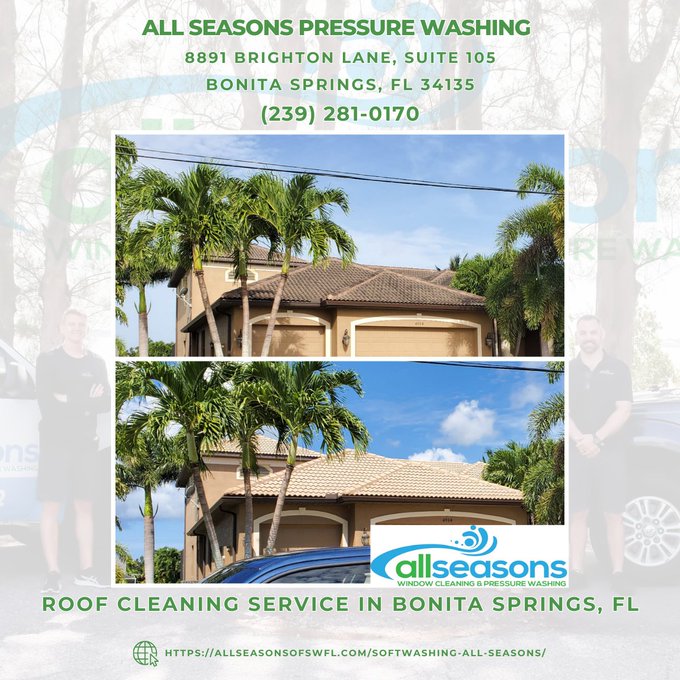Introduction
Navigating the world of home improvement can be daunting, especially when it comes to DIY rooftop work. Whether you're looking to clean your roof, apply a protective coating, or even just perform some maintenance, local regulations can complicate matters. roof cleaning solutions This comprehensive guide aims to help homeowners understand the ins and outs of DIY rooftop work while navigating local regulations. From cleaning methods to safety precautions and legal requirements, we'll cover everything you need to know to ensure your project goes smoothly — without running afoul of the law.
What is Roof Cleaning Called?
Roof cleaning has several names depending on the method used, including soft washing, pressure washing, and chemical cleaning. Each method targets different types of debris such as moss, algae, and dirt.
Is Roof Cleaning a Good Idea?
Absolutely! Regular roof cleaning helps maintain your roof's integrity and extends its lifespan. Ignoring debris build-up can lead to costly repairs down the line. But before diving into a DIY project, it’s crucial to understand local regulations regarding roofing work.
How Often Should Your Roof Be Cleaned?
Most experts recommend cleaning your roof at least once a year. However, if you live in a humid area prone to mold growth or near trees that shed leaves frequently, you may need more Roof Washing frequent cleanings.
What Happens If You Don't Clean Your Roof?
Neglecting roof maintenance can lead to various problems:
- Mold Growth: This can deteriorate shingles and jeopardize structural integrity. Water Damage: Blocked gutters and downspouts can cause water pooling. Reduced Lifespan: A dirty roof won’t last as long as a well-maintained one.
Navigating Local Regulations Regarding DIY Rooftop Work
Understanding local regulations is essential for any DIY rooftop project. Many municipalities have specific codes regarding:
- Safety measures (e.g., harnessing systems) Permits required for certain work Restrictions on height or type of materials used
It’s advisable to check with your local building department before starting any project.
Can I Clean My Roof Myself?
Yes, but there are important factors to consider:
Safety: Always use proper safety gear like harnesses and shoes with good traction. Local Laws: Ensure you're not violating any permit or zoning laws. Technique: Use appropriate methods for different roofing materials.What is the Best Method of Roof Cleaning?
The best method largely depends on the condition of your roof:
- Soft Washing: Ideal for delicate roofs; uses low pressure with special cleaning solutions. Pressure Washing: Effective but can damage shingles if not done carefully.
Is Pressure Washing Your Roof a Good Idea?
Not always! While it effectively removes stubborn stains and dirt, high-pressure water can strip away granules from shingles, leading to premature wear.
How Do I Clean My Roof Myself?
Cleaning your roof yourself involves several steps:
Gather tools: soft brush, hose with spray nozzle, safety gear. Remove debris: Clear off leaves and branches. Apply cleaner: Use a gentle solution designed for roofs. Rinse thoroughly: Make sure no residue remains.How Long Does It Take to Clean a Roof?
Typically, cleaning a roof takes about 2–4 hours depending on its size and condition. If you're working alone or using less efficient methods, expect it to take longer.
Should I Clean My Own Roof? Pros & Cons
Pros:
- Cost savings on labor Full control over the process
Cons:
- Risk of injury Possible damage if not done correctly Time-consuming
What Chemical is Used to Clean Roofs?
Common chemicals used in professional roof cleaning include sodium hypochlorite (bleach) and specialized biodegradable cleaners designed for specific roofing materials.
Does Roof Cleaning Extend the Life of a Roof?
Yes! Regular maintenance prevents deterioration caused by moss and algae growth that could compromise roofing materials over time.
What Are the Cons of Roof Cleaning?
While beneficial overall, there are some drawbacks:
Potential for damaging shingles if incorrect methods are used. Temporary disarray during the cleaning process. Costs associated with hiring professionals if DIY proves too challenging.How Do Professionals Clean Roofs?
Professionals typically use specialized equipment like soft wash systems that gently clean without risking damage while ensuring compliance with local regulations regarding chemical runoff.
Should You Rinse a Roof After Washing?
Yes! Rinsing ensures no residual chemicals remain that could harm vegetation below or degrade roofing material over time.
FAQ Section
1. How much does it cost to coat a roof?
The cost varies widely based on materials used but typically ranges from $1-$3 per square foot for most residential roofs.
2. Can I walk on my roof to clean it?
You should only walk on your roof if it's safe; check for stability first!
3. What is soft wash roof cleaning?
Soft washing utilizes low-pressure water combined with cleaning solutions that's effective yet gentle enough not to damage roofing materials.
4. How often should I coat my roof?
Most experts recommend re-coating every 5–10 years depending on material wear and environmental conditions.
5. Can roof cleaning cause leaks? Improper techniques or using unsuitable chemicals might lead to leaks if they compromise roofing materials’ integrity.
6. Is steam cleaning a roof safe?
Conclusion
When it comes down to navigating local regulations regarding DIY rooftop work, knowledge is power! Understanding what’s allowed in your area will save you time and money while ensuring that you keep your home safe from potential hazards associated with improper roofing practices. By staying informed about proper techniques—like knowing whether soft washing or pressure washing suits your needs—you’ll maintain the beauty and functionality of your rooftop effectively!
So before climbing up there armed with buckets and brushes, take some time to research local guidelines—you'll thank yourself later!
